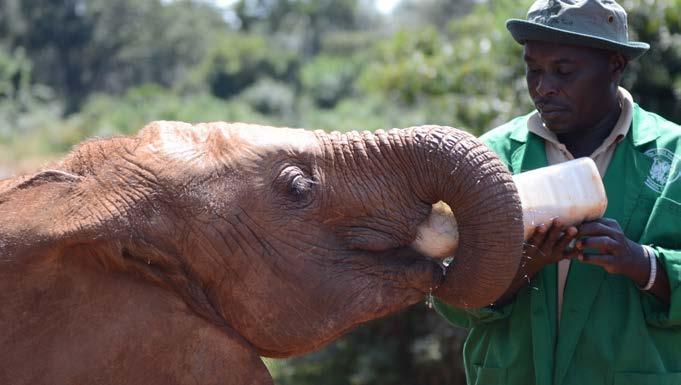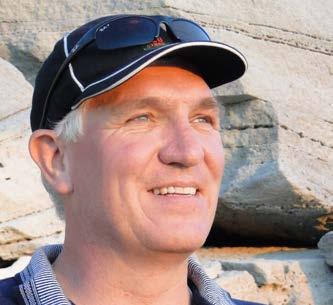
3 minute read
A LOCAL PERPECTIVE
Mindfulness in incentive travel programmes.
Incentive travel delivery has evolved from the sometimes-lavish programmes of yester-year with many incentives eschewing the glam for more real experiences.
Advertisement
That does not mean that the wow factor has gone, but rather that participants, as well as the organisations running incentive programmes, have become both more environmental and socially aware. This is also a reflection of the values of a younger incentive qualifier demographic who are more comfortable posting experiences and their participation in give-back/CSR projects than hanging out at glamorous venues.
This is good news for Africa, as the continent has a wealth of experiences that relatively few participants from our source markets have done before. Africa also has incredible opportunities for contributing to social projects and communities as well as environment and conservation.
We have seen an increase in demand to include CSR elements, usually entailing up to one full day of a typical five-day programme. Examples vary, from assisting a needy community, to rhino-notching or other ethical wildlife related conservation elements.
It is encouraging to see that “instagrammers” feel that it is far cooler to share an image of oneself posing with the rhino conservation team, having just completed much needed research to protect the species, than hanging out in a fancy night club hotel or restaurant.
The term “mindfulness” describes this shift — a movement that will hopefully grow and become the norm for all incentive programmes. Mindfulness is simply a concern for any impact that one’s visit may have, and the urge to contribute and depart having left a legacy following the trip. It is a great opportunity for organisations to create closer relationships with high performing employees. Companies that show the right level of corporate responsibility are attractive to job seekers and enjoy greater employee retention rates, as they are viewed as cool places to work.
SITE’s 2020 annual Incentive Travel Index shows how this trend is growing in importance, and thankfully, programme designers are acknowledging the participants’ desire to do more than tick off another city or destination and its highlights. It is more about ‘what I did when I was there’ than ‘what I saw, where I stayed or what I ate’. We may also no longer treat an incentive group as one amorphous body. Differing interests need to be catered for and this creates a challenge for both planners and DMC’s. If a multi-generational group were to visit a destination on a private holiday, they would likely do and experience different things. Incentive trips need to acknowledge this by including free time and optional activities that cater to those varying needs.
At the end of the day, catering to a mindful group of participants is both challenging and rewarding. It is easier to pack a group of incentive qualifiers onto a coach for a group experience than to offer a selection of different optional experiences.
Forward-thinking organisations are, however, realising that by enabling participants to select certain elements of a programme, that many do opt to participate in CSR and other activities which are more meaningful. We have also seen elements – for example room-drop gifts – shift from aspirational brand items to impact-sourcing of sustainable crafts and other locally sourced gifts.
Incentive travel is evolving in a positive direction, and although business results and ROI are the prime drivers of incentive travel programmes, the optics from both the organisation and participant perspectives reflect an increase in responsibility and social awareness that bodes well for its future.
Who is Daryl Keywood?

Daryl Keywood is the managing director and chief executive officer at Walthers Destination Business Solutions Africa, an award winning tourism business with a strong focus on incentives and conferences. Winner of six SITE Crystal Awards, Walthers is internationally recognised as a leader in corporate social responsibility. Daryl qualified at South Africa’s IMM Graduate School and worked in several corporate marketing positions in South Africa and Europe. Prior to moving into tourism in 2000, he managed a business unit within the chemicals division at Unilever South Africa. He has a deep passion for Africa and its people, travelling three to four months of each year marketing and accompanying clients within the continent. At the end of 2020, Daryl stepped down as the Africa/Middle East representative on SITE’s International Board of Directors where he spent two terms on the executive committee as vice president of education. Daryl is a former chapter president of SITE Africa and currently fills the sustainability portfolio on the chapter board.










